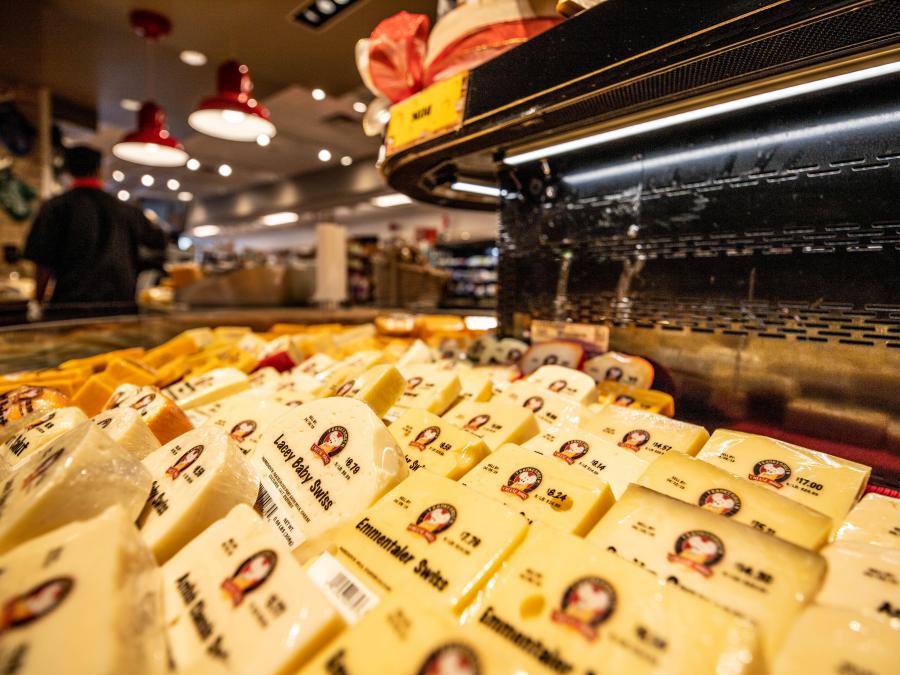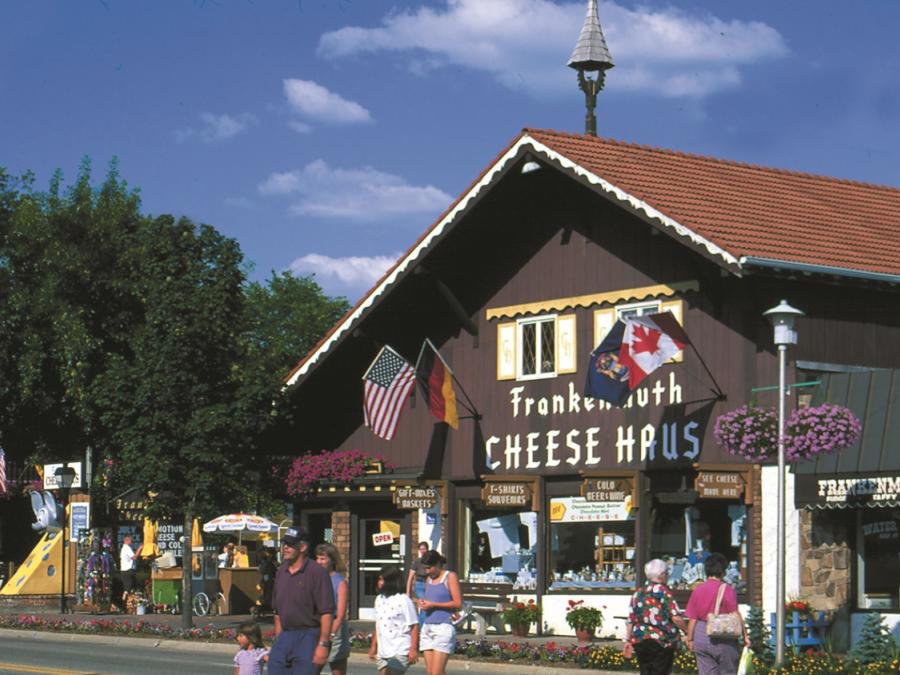Discover how Germany’s long standing traditions of beer-brewing and cheese-making have enriched the authentic German experience of Michigan’s Little Bavaria for 175 years. Willkommen to Frankenmuth, and prost (cheers)!

“Wenn i etz bloss a Bierla haet!”
The first group of 15 settlers arrived in 1845, the second group of 90 came in 1846 and together the community of Frankenmuth now had a large enough group to establish a business community. “One of the items the first settlers missed very much was the native liquid refreshment of Bavaria – beer,” writes the author of “Teach My People The Truth! The Story of Frankenmuth, Michigan”, Herman F. Zehnder.
As the story goes, a man named John Strieter, who wrote this account in his autobiography, assisted a Frankenmuth farmer in the hot summer fields late in the 1840’s. “The farmer paused from his work,” Zehnder writes, “looked heavenward, and sighing said, ‘Oh, what I wouldn’t give for a beer now!’ (Wenn i etz bloss a Bierla haet!)”
It’d be nearly 10 years before that farmer’s thirst, shared by many of the early settlers, would be quenched.
📷: @jroose13
First Brewery in Frankenmuth
John Matthias Falliers is considered the first man to brew beer in Frankenmuth, in 1857.
Falliers had come from Zamback, near Steinacham, in Bavaria, and he operated a small tin shop in the Frankenmuth community. As Zehnder writes, “He built ‘The Frankenmuth Brewery’ and brewed his first beer in 1857. It was a very small brewery. The cast iron brew-kettle had a capacity of no more than 200 gallons. The quality of the beer was not equal to that which the colonists had enjoyed in Germany. But there was beer!”
"But there was beer!”

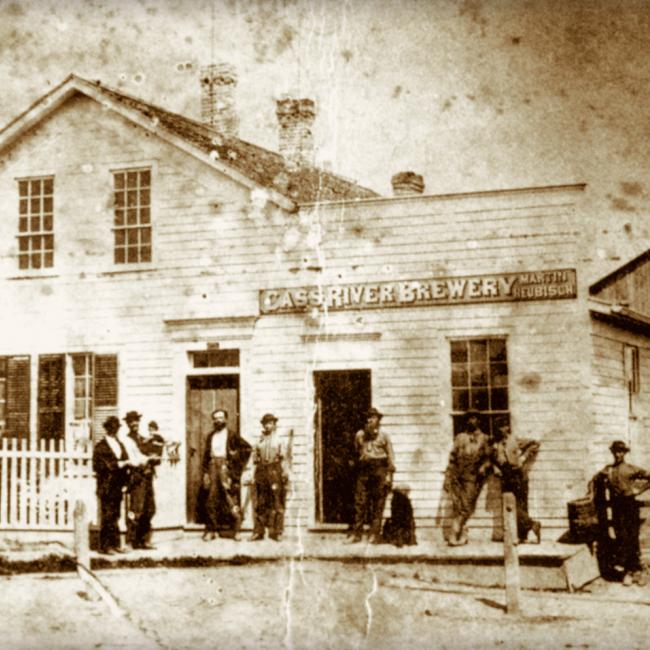
Brews & Steins
The first Frankenmuth brewery ceased operations in 1864, and Falliers died just two years later.
Through the years, German-style beer was steadily brewed throughout Frankenmuth, and brewery locations and ownership steadily changed. For example the Cass River Brewery, opened in 1862 by cousins William Knaust and Martin Heubush, became Geyer Brother’s Cass River Brewery in 1874, owned by John and George Geyer. Throughout many changing-of-hands and various locales of storied notoriety, Frankenmuth today is home to historical breweries, new age taprooms, and grand festivals dedicated to its ancestors’ craft of brewing beer!
Michigan’s Little Bavaria is the place to be for bocks, ales, duncles, and doppelbocks served frothy and cold, and possibly in German steins, or mugs used for drinking “the native liquid refreshment of Bavaria – beer.”
Deep Roots & Delicious Cheese
Germany produces more than 600 different types of cheese and approximately 75 percent of Germany’s cheeses are made in Bavaria — the very region which the original settlers of Frankenmuth emigrated from. In Frankenmuth today, cheese is nearly synonymous with the Frankenmuth Cheese Haus, a business whose roots run deep and actually stem from the town’s original settlers.
Passage to Present
Two men, Johann Stephan Zehnder and John G. Hubinger, shared passage in 1846 to present-day Frankenmuth.
Surely filled with hope for what the future would hold, they simply couldn’t have envisioned the destination place that Frankenmuth is today, or known that their great-grandchildren would be conducting business together more than 100 years later in the town they would help forge.
The Hubinger family was among the first to open businesses in Frankenmuth in the mid-1840s, including a mill, and they founded the town’s first cheese factory—The Frankenmuth Cheese Factory—in 1884. The Hubingers also operated a grocery store.
The family sold their store in the 1950s to William “Tiny” Zehnder who went on to open the Frankenmuth Cheese Haus in 1968.
The business is now owned by 5th generation Judy Zehnder Keller, daughter of William “Tiny” Zehnder and the great-great-grandaughter of Johann Zehnder who originally braved passage to Frankenmuth 174 years ago.

Delicious Experience
Today, the Frankenmuth Cheese Haus is a newly renovated, 1,600 square-foot tourist destination dedicated to cheese.
Expanded in 2018, the Frankenmuth Cheese Haus was designed to mirror an authentic German building, complete with the “onion dome”, or an authentic German 2,000-pound, 23-foot-copper “Zwiebelturm”, atop the Cheese Haus.
A 74-foot Figurinespiel Tower also marks the location and shares the “The World of Cheese”, an animated story about cheese making across Europe and the United States. Daily shows are 10 minutes long, and take place at 9am, 11am, 2pm, 5pm, and 8pm.
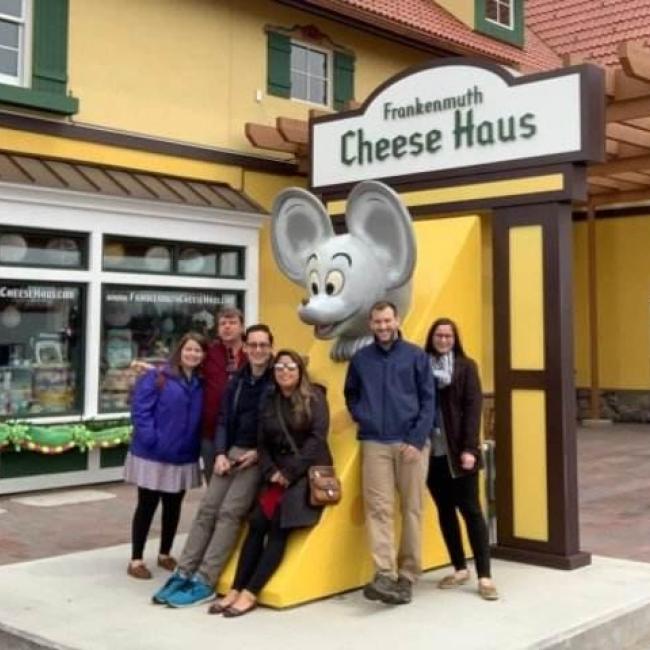
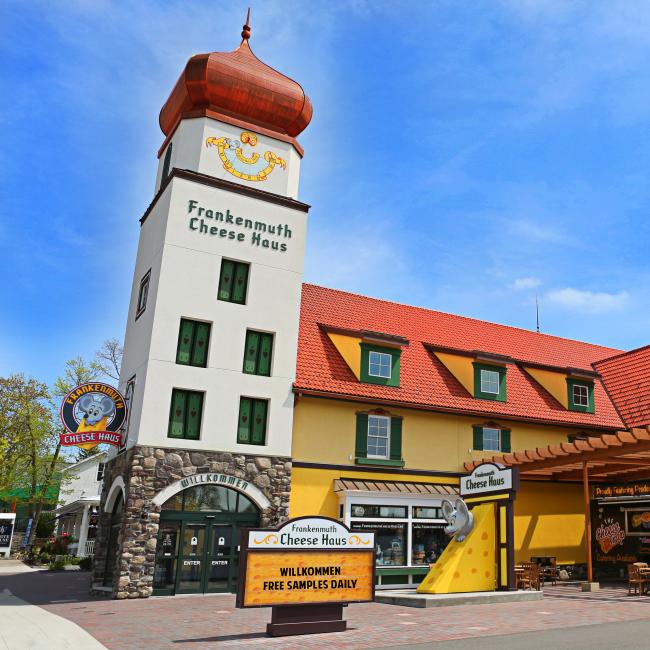
The Frankenmuth Cheese Haus features more than 160 cheeses, including in-house cheeses and cheese spreads in notable flavors such as chocolate and strawberry and its ever-popular garlic spread.
Much like the roots of the Frankenmuth Cheese Haus are nearly synonymous with Frankenmuth itself, their mascot has become iconic to the Frankenmuth Cheese Haus and the experience of cheese in Frankenmuth, as well.
Introduced in 1970, and officially named Klaus theCheese Haus Mouse in 2020 in celebration of Frankenmuth Cheese Haus’s 50th anniversary, “Klaus” is one of the most photographed landmarks in all of Frankenmuth — the all-out land of authentic Bavarian cheese and beer for 175 years!
📷: @missyincolor
Did you know... Mozzarella is the most popular cheese in the WORLD?
DISCOVER MORE HISTORY
Read more about Frankenmuth's long standing tradition of entrepreneurship and how the town came to be what it is today. Celebrate 175 years of Michigan's Little Bavaria!

